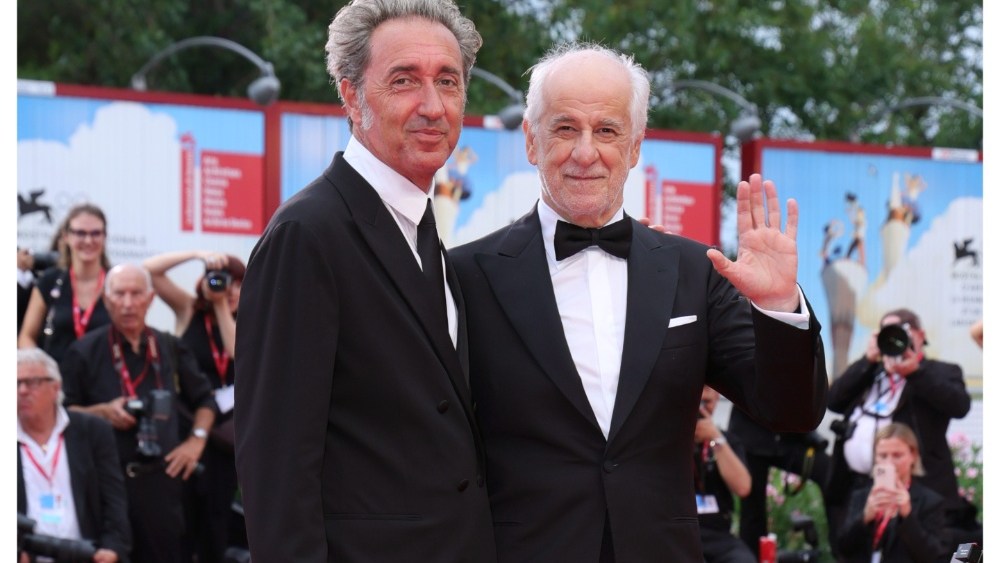The Italians love Paolo Sorrentino.
His latest drama “La Grazia,” which kicked off the 82nd Venice Film Festival, was met with a four-minute standing ovation on Wednesday night on the Lido.
The story of an aging politician dealing with his own mortality — and deciding two challenging clemency cases in his final days in office — brought the Venice crowd to their feet as Sorrentino clutched his chest and waved to his fans inside the Sala Grande Theatre. The audience was made largely of Italian officials and members of the industry with some star power in the form of Tilda Swinton and Cate Blanchett.
“La Grazia” re-teams the Oscar-winning Sorrentino with his male muse and “The Great Beauty” star, Toni Servillo, who has appeared in seven of Sorrentino’s 10 feature films to date. Servillo plays a fictional Italian president named Mariano De Santis, who is torn by doubts about whether he should sign a draft law that would allow euthanasia in the Catholic country.
De Santis is a man of great integrity, despite the fact that he sneaks an occasional cigarette that he inhales deeply through his single lung. The president also warms to a real Italian rapper known as Guè, who was on the red carpet.
In an interview with Variety, Sorrentino – who made his debut at Venice in 2001 with Servillo-starrer “One Man Up” – spoke about his decision to portray a positive example of a politician in the film.
“Every day in the news we read about decisions made by politicians that stem from impetuosity, show of force and strange twisted ideas about how the economy works,” he said. “Instead of this, I wanted to depict what a politician should be like.”
“La Grazia,” which is premiering at the fest in competition, brought a mostly Italian audience to the Lido, with few international stars, besides the jury members, on the red carpet, one exception being Tilda Swinton. Over the next ten days when boatloads of A-list talent will be disembarking for what is set to be the most high-wattage celebration of cinema on the Lido in recent memory.
“If all these movies are here, it’s because they were rejected by Cannes” joked the ceremony’s host, actor and comedian Emanuela Fanelli.
During the ceremony Francis Ford Coppola presented Werner Herzog with a Golden Lion for lifetime achievement calling the German cinema giant, known for films such as “Signs of Life,” “Nosferatu the Vampyre,” “Aguirre, the Wrath of God” and “Fitzcarraldo,” an “unlimited phenomenon working in every nook and corner in cinema.” The event marked Coppola’s first public appearance since undergoing a heart procedure in Rome earlier this month.
Earlier in the day, the ongoing war in Gaza dominated the festival’s jury press conference where jury president Alexander Payne dodged a question about the conflict and how the festival should address it.
“I feel a little bit unprepared for that question,” Payne said. “I’m here to judge and talk about cinema.”
A pro-Palestinian demonstration on the Lido is planned by local activists on Aug. 30.
In his brief speech during the ceremony Payne said he encouraged his fellow jurors “to consider that we know something about cinema, but also nothing at all.”
“To look at each movie simultaneously with the eyes of a professional, but also with the eyes of a child who is perhaps seeing a movie for the very first time,” he went on to explain.

